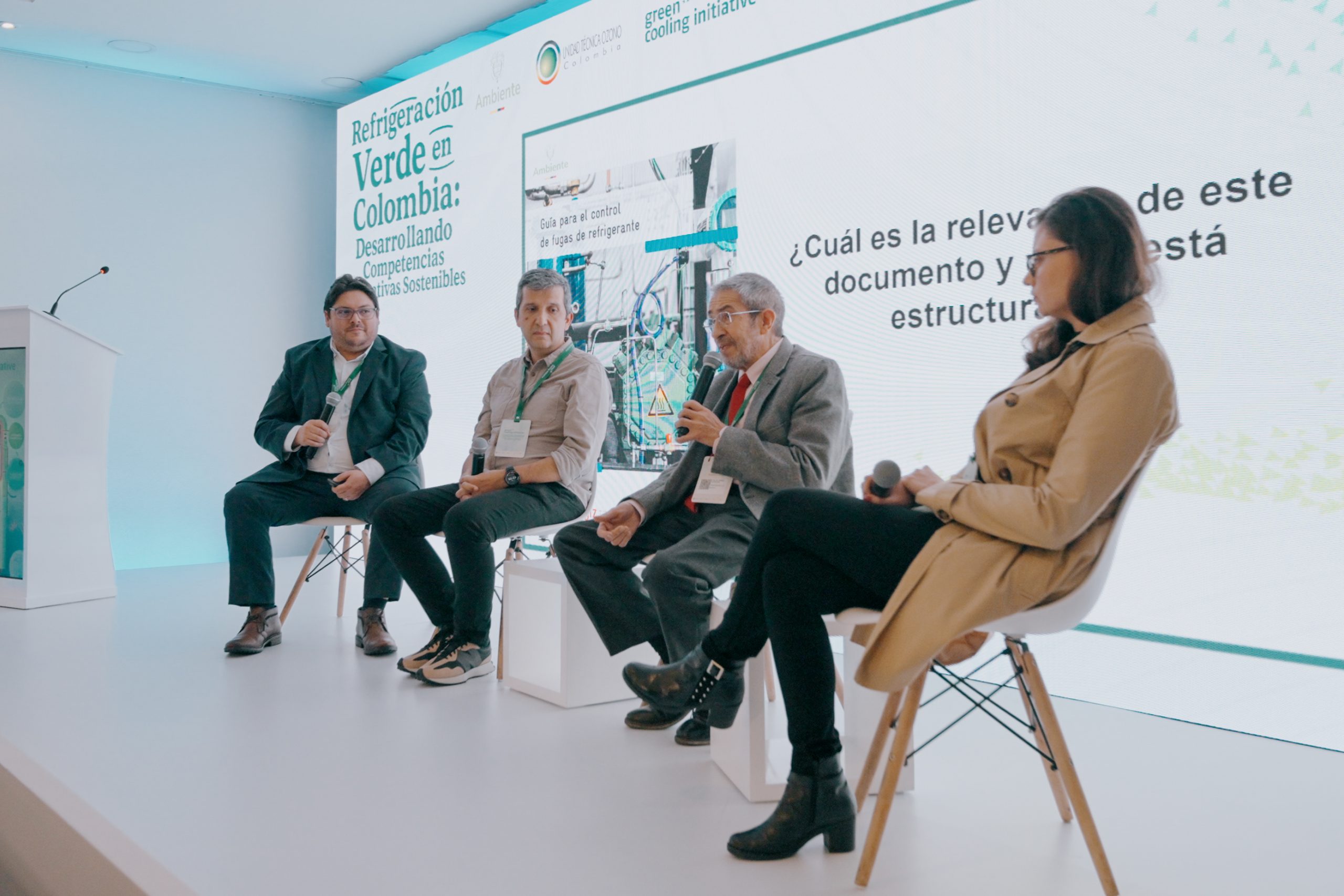- During the event, the closing of the Green Cooling Initiative III project was presented and the commitment to clean and efficient technologies in the RAC sector was reiterated.
- The event brought together representatives of the production sector, technicians and institutions committed to the energy transition and climate protection.
Bogota, D. C., June 19, 2025 (@MinAmbienteCol) – As a result of the accelerated growth in demand for cooling systems and air conditioning (RAC) in the industrial and commercial sectors, Colombia faces the challenge of moving towards cleaner, safer and more efficient technologies. To support the processes of technological change, the Ministry of Environment and Sustainable Development (MinAmbiente), in partnership with the Proklima program, implemented from the German Development Cooperation (GIZ) on behalf of the Federal Ministry of Environment, Nature Conservation, Nuclear Safety and Consumer Protection of Germany, develops actions that contribute to the protection of the ozone layer and climate change mitigation, especially in the growing number of equipment and RAC systems installed that increase the consumption of refrigerants with high environmental impact.
Among these actions is the launch of three new technical guides at the official closing of the Green Cooling Initiative III project. The purpose of these publications is to support the productive sectors in the adoption of these new technologies, strengthen technical capacities, promote good practices and contribute to the commitments acquired by the country within the framework of the Montreal Protocol, in line with global climate challenges and national environmental goals.
The three guides presented were:
1. Good practice guide for commercial refrigeration equipment and systems with hydrocarbon refrigerant R-290: aimed at technicians, companies and installers, provides clear guidelines for the safe installation, operation and maintenance of systems operating with R-290, a natural refrigerant that stands out for its low environmental impact.
2. Guide for the formulation of greenhouse gas emission reduction initiatives in the retail subsector: provides key tools for the design of greenhouse gas emission mitigation projects that incorporate improvements in refrigeration, leakage control and energy efficiency. It also includes financing options, tax benefits and mechanisms for accessing carbon markets in order to boost sustainability in the sector.
3. Guide for refrigerant leakage control: provides practical methodologies for the detection, evaluation and correction of leaks in refrigeration and air conditioning systems. Its implementation not only reduces pollutant emissions, but also improves energy efficiency and optimizes operating costs in industrial and commercial facilities.
The aforementioned documents are strategic instruments that guide the sector towards a more conscious and prepared industry, in which efficiency, innovation and environmental commitment become drivers of development in Colombia.
The guides are available for consultation and download through the following links:
MinAmbiente web page https://www.minambiente.gov.co/asuntos-ambientales-sectorial-y-urbana/publicaciones-de-la-unidad-tecnica-ozono/
